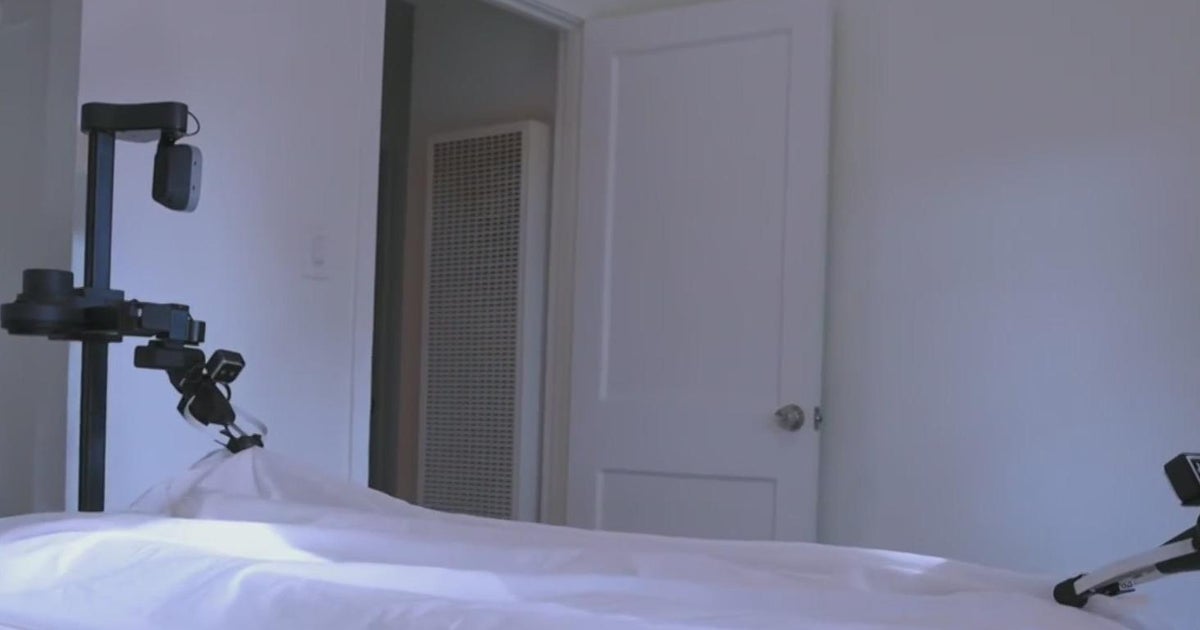Pittsburgh researchers publish study to record signs of concussion in slap fighters
PITTSBURGH (KDKA) -- Neurosurgery experts at the University of Pittsburgh's School of Medicine released a first-of-its-kind study identifying the brutal dangers of slap fighting.
When you hear concussion worries, you likely think of contact sports like football or boxing. But have you ever heard of slap fighting? It's gaining popularity among online audiences, and it's raising head injury and brain trauma concerns.
"I'm going to give a simple word, and it's barbaric," said Dr. Nitin Agarwal, associate professor of neurological surgery at the University of Pittsburgh.
Just watching the popular videos makes you say "Ouch."
"They take aim at each other and slap each other. So, they keep going, usually, it's for three rounds. They keep going until one of them can't participate," said Raj Swaroop Lavadi, postdoctoral research fellow in the Department of Neurological Surgery at the University of Pittsburgh.
The fight continues until one of the competitors gets knocked out or until the judges decide the winner.
Lavadi and Agarwal are two of several authors on the first study to ever record signs of concussion in slap fighters. Their research involved watching videos of competitions and analyzing 333 slaps.
"We had a log sheet, and we basically documented each time we observed a visible sign of concussion," Lavadi said.
The findings, published in the journal JAMA Surgery, paint an alarming picture.
"In the slaps that were observed, there was nearly a one-third frequency of a visible sign of concussion. And in the sequences, half of those had a visible sign of concussion. So, those numbers, it's almost like a coin toss. ... That's very, very scary to me" Agarwal said.
Three walloping signs they identified in slap sequences:
- Nearly 40 percent showed poor motor coordination.
- About one-third had a blank and vacant look.
- A quarter were slow to get up.
"It's quite concerning," Lavadi said.
They hope the study will strike up conversations about slap fighting dangers, and a need for improved regulations in what they don't even like to call a sport.
"How can you really protect the athletes? I think increased awareness is probably the best thing we can do at this point. I think it's better to be done away with. It was cool, it was entertaining for the time period. I think it's now time to put it to rest," said Lavadi.
"Quite frankly, I don't think this should be publicized as a sport. It's quite devastating to me to see that people are willingly participating in this, and I'm hoping that there is a recognition of the of the danger here," Agarwal said. "In professional football, there's talks about improving the helmets. Already there's improved helmets for practice squads. For this, there is no defense. Your defense is to stand still and get hit."
The researchers will investigate slap fighting further by analyzing the physical impact of an average slap using mouthpieces, similar to those used by pro football players.
This study was a team effort with about a half-dozen experts involved. They ran numbers, watched videos and used their medical expertise in sports and more.
The other authors of this research are all from Pitt, including Rohit Prem Kumar, B.A.; Michael Kann, B.E.; Manan Shah, M.D.; D. Kojo Hamilton, M.D.; and Joseph Maroon, M.D.
The more detailed findings in the study: "More than half of the slap sequences resulted in participants exhibiting visible signs of concussion. By the end of their matches, nearly 40% of sequences resulted in signs of poor motor coordination, about a third of the sequences resulted in participants having a blank and vacant look, and a quarter of the sequences featured participants who were slow to get up after being brought down by a blow. Nearly 80% of the fighters demonstrated a visible sign of concussion at least once in the series of matches."




